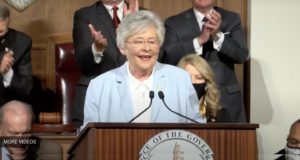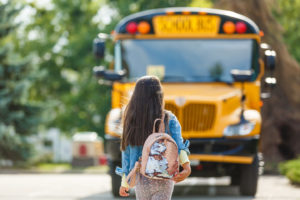Alabama House conducts public hearing for education savings account bill
(The Center Square) – A bill that would create an education savings account program in Alabama was rewritten in committee after a public hearing on Wednesday.
The Ways and Means Education…

(The Center Square) – A bill that would create an education savings account program in Alabama was rewritten in committee after a public hearing on Wednesday.
The Ways and Means Education Committee in the House of Representatives took up the Creating Hope and Opportunity for Our Students’ Education Act and heard from people supporting and opposed to the bill. There’s a vote on Thursday and it could possibly reach the full house afterward.
The bill would create a $100 million fund for annual scholarships of $7,000 used by parents for tuition and other educational costs. It is also Gov. Kay Ivey’s biggest legislative priority for the session. Rep. Danny Garrett, R-Trussville, is the sponsor and chairman of the committee.
“You’ve heard some say this bill before you today will gut the education budget in order to provide voucher payments to wealthy parents to pay for private schools and take funds from public schools,” Garrett said. “Some have said the motivation behind the CHOOSE Act is all about race and that the goal of tis legislation is to return to the days of segregation and racial segregation in our schools and in our society.
“Of course, neither of these statements are true. The purpose behind this legislation is to provide opportunities that are not currently available to parents to use a portion of their tax dollars to choose a school that best meets the needs of their child, whether that be for academic, social, emotional, environmental, mental health or perhaps bullying reasons. The CHOOSE Act will allow students to learn and thrive in an environment that best meets their needs.”
The biggest change with the rewritten bill that if the annual allocation of $100 million isn’t fully spent on education savings accounts, it is rolled forward for next year. Once there is $500 million in the program that has been rolled over, any additional funds are sent to the state’s Education Trust Fund.
The rewritten bill would also require participating schools to put their tuition payments on a schedule to be determined by the state Department of Revenue. Garrett said this was to ensure that the state wouldn’t spend education savings account funds if a participating student withdraws from that school during the school year.
The new bill would also prevent discrimination by private schools against education savings account students by charging them higher tuition than students not participating in the program.
Another aspect of the rewritten bill is that the education savings account program wouldn’t be subject to proration, when lawmakers are forced by declining state revenues to cut appropriations to all programs and services.
The Alabama Education Association, which is the state’s largest teacher’s union, is neutral to the bill. Allison King, a spokeswoman, said the bill did have a lot of good provisions and protections in it to safeguard some of their concerns with school choice measures in general.
“Overwhelmingly, taxpayer-funded vouchers benefit students that are already and have always been in private schools,” King said.
She also said that of the 14 states with education savings account programs, 80% to 90% of those using the program have always been in private schools.
“The challenge for us is the budget,” King said. “We are very concerned about protecting the education trust fund long term. We are not concerned with students fleeing their public school system. Most people are happy with their public schools and most of the folks that take up this program are folks that have always been in private school.”
Adam Thompson, the state director for Americans for Prosperity, spoke in favor of the bill.
“This does not defund public education,” Thompson said. “There’s no change to the foundation formula. There’s no change to local and federal funding. School systems will continue to receive the same funding they’ve always received, including any increases that the Legislature has done year after year. It is not a runaway program. The Legislature has to appropriate the funds every year and is fully in control of the program.”



